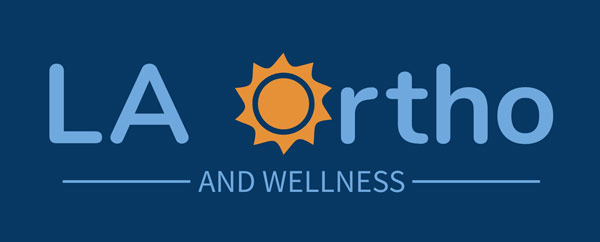If you’ve ever experienced sudden knee pain, swelling, and difficulty moving after a sports-related accident or an awkward twist, you may be familiar with an ACL tear in Burbank. This common injury can sideline you and disrupt your active lifestyle. Dr. Jonathan Gelber offers personalized treatments to help you reclaim mobility and get back on your feet.
What is an ACL injury?
An ACL (Anterior Cruciate Ligament) tear is a traumatic tearing or overstretching of the anterior cruciate ligament, one of the key stabilizing ligaments in the knee joint. This ligament is vital for maintaining stability and controlling rotational movements of the knee. ACL tears often occur during activities involving sudden stops, pivoting, or changes in direction, such as sports like soccer, basketball, and skiing. These injuries can range from mild sprains to complete tears, leading to pain, swelling, and instability in the affected knee.

Common Symptoms of ACL Injuries:
- Sudden knee pain
- Swelling and inflammation
- Difficulty bearing weight on the injured leg
- A popping sound at the time of injury
- Limited range of motion in the knee
- Instability or a feeling of the knee “giving way”
- Tenderness along the joint line
- Difficulty walking or moving the knee without pain
For less common symptoms of an ACL injury or ACL tear in Burbank, contact our office.
Potential Causes of ACL Injuries:
- Sudden changes in direction or pivoting during sports
- Awkward landings from jumps
- Direct impact or collision to the knee
- Hyperextension of the knee
- Landing improperly after a jump
- Overuse or repetitive stress on the knee
- Weakness or imbalance in leg muscles
- Previous history of ACL injury
Treatment Options for an ACL Injury
Dr. Jonathan Gelber offers various treatments to aid in your recovery. Dr. Gelber will carefully evaluate your case to determine the most suitable approach, ranging from regenerative medicine options like PRP and stem cell injections to arthroscopic surgery as a last resort.
Regenerative Medicine
Regenerative medicine includes PRP injections, stem cell injections, cortisone injections, and viscosupplementation. PRP and stem cell injections harness the body’s natural healing abilities, while cortisone injections can help manage inflammation. Viscosupplementation involves injecting lubricating fluid into the joint to alleviate pain and improve mobility.

Functional & Integrative Medicine
Functional and integrative medicine approaches may focus on holistic healing for an ACL tear in Burbank. This involves addressing underlying issues such as muscle imbalances, biomechanical problems, and dietary factors that can affect your recovery. These methods can include physical therapy, nutritional guidance, and specialized exercises to improve your overall health and knee stability.
Last Resort: Arthroscopic Surgery
When conservative treatments do not yield the desired results, or for severe ACL injuries, arthroscopic surgery may become the last resort. During this minimally invasive procedure, the damaged ACL is reconstructed using tissue grafts. Surgery is typically followed by an extensive rehabilitation program to regain strength, stability, and range of motion in the knee.

ACL Tear FAQs
Can an ACL tear heal on its own without surgery?
An ACL tear typically does not heal on its own due to poor blood supply to the ligament. While minor injuries may improve with physical therapy, complete tears often require medical or surgical intervention to restore full function and stability to the knee.
How is an ACL tear diagnosed?
An ACL tear is diagnosed through a combination of a physical examination, patient history, and imaging tests such as MRI or X-rays. These methods help determine the extent of the injury and plan appropriate treatment.
What is the typical recovery time after ACL reconstruction surgery?
The typical recovery time after ACL reconstruction surgery ranges from six to nine months. Depending on individual progress and rehabilitation protocols, this period includes phases of rest, physical therapy, and a gradual return to activities.
Can an ACL tear lead to long-term knee problems?
Yes, an untreated ACL tear can lead to long-term knee problems like chronic instability, increased risk of further injuries, and the development of osteoarthritis. Early diagnosis and proper treatment are essential for preventing these complications.
When should I see a doctor for knee pain or a suspected ACL tear?
You should see a doctor if you experience knee pain, swelling, instability, or difficulty bearing weight after a knee injury. Early medical evaluation is crucial for accurate diagnosis and timely treatment of a suspected ACL tear.

Consult Dr. Gelber Today
Dr. Jonathan Gelber is a board-certified orthopedic surgeon with fellowship training in sports medicine. As a lifelong athlete, Dr. Gelber understands the importance of returning to an active lifestyle. With his comprehensive knowledge and experience, he’s dedicated to providing personalized care that aligns with your unique needs as an athlete. Consult Dr. Gelber to embark on your journey toward recovery and reclaim peak performance, after an ACL tear in Burbank.


